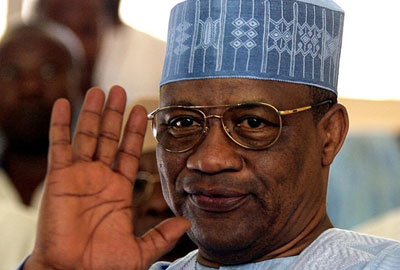After a prolonged period of litigation and delays lasting more than two years, judgement in one of the longest-drawn suits in the nation’s oil and gas industry will be delivered tomorrow at the Federal High Court sitting in Abuja — that concerning accountability for the missing $12.4bn oil windfall recorded between 1988 and 1994 while former military dictator, General Ibrahim Babagida ruled the country.
Not only will Friday’s judgment be keenly followed by millions of Nigerians and global human rights and anti-corruption groups, it is expected to set the legal precedent upon which other corruption cases in the country could be hinged.
Led by Socio-Economic Rights and Accountability, a coalition of civil society groups Project (SERAP) — others being Women Advocates and Documentation Centre (WARDC), Human and Environmental Development Agenda (HEDA), Access to Justice (AJ), Partnership for Justice, and Committee for Defence of Human Rights (CDHR) —had sued the Attorney General of the Federation (AGF) and the Central Bank of Nigeria (CBN) in September 2010, seeking information on how $12.4bn oil windfall of between 1988 and 1994 was spent.
In addition to seeking an order compelling CBN and the AGF to publish detailed accounts of the spending of the money, they also sought an order of the court compelling the respondents to diligently and effectively bring to justice anyone suspected of corruption and mismanagement of the $12.4bn.
They equally want an order directing the respondents to provide adequate reparation, in the form of restitution, compensation, satisfaction or guarantees of non-repetition to millions of Nigerians who have been denied their human rights as a result of the respondents’ failure and/or negligence to ensure transparency and accountability in the spending of the windfall.
“The need for information regarding the spending of the $12.4bn oil windfall is important to promote transparency and accountability in the management of public resources and to fulfill Nigeria’s international obligations to promote the development of the country,” read a part of a statement from the plaintiff.
“Access to information of this nature is especially important in this country, which is struggling to establish the rule of law and democracy in the face of underdevelopment, poverty, illiteracy and diseases. The right of access to information is also crucial to the realisation of all other human rights, including the peoples’ right to their natural wealth and resources.”
Continuing, the statement added, “The diversion and/or mismanagement of the $12.4bn oil windfall is a violation of Nigerians’ right to natural resources and wealth and to economic development, as recognised and guaranteed by 21 and 22 of the African Charter on Human and Peoples’ Rights (Ratification and Enforcement) Act).
“Under the African Charter, the Nigerian government has a legal responsibility to utilise the natural resources of the country so as to benefit the whole people. Just as the people of every sovereign state have a permanent right to choose their form of government, the people are entitled to insist that the natural resources of the nation are exploited in the interest of the people.”
Sola Egbeyinka of Falana and Falana Chambers, solicitor to the Registered Trustees of Socio-Economic and Accountability Project (SERAP) and the other right groups that instituted the suit will be present in court for the judgment.
At the hearing in September, the Federal Government had insisted that the enactment by the former Chief Justice of Nigeria Idris Legbo Kutigi of the Fundamental Rights (Enforcement Procedure) Rules 2009 “exceeded his constitutional powers by liberalising the rules on locus standi, permitting public impact litigation, and allowing the inclusion of the African Charter on Human and Peoples’ Rights in the Rules.”
The government also argued that it could not find the Okigbo report, and had no duty to render account on the spending of the accrued revenue. But the plaintiffs disagreed, saying that “such duty exists on the basis of Article 9 of the African Charter, which has become part of our national laws.”
Also, the Freedom of Information Act has been enacted, imposing a legal duty on public institutions and agencies to render account, and allow access to public documents.”
It was also argued for the government that only the AGF as a defender of public interest has the right to seek information on the spending of the windfall, not the plaintiffs.
The plaintiffs countered by saying that it was “the failure of the AGF to carry out his duty in this respect,” that prompted their legal action against the government in the first place.
The case was originally earmarked for judgment on Thursday 24th July 2011 but it has suffered several adjournments. It was previously adjourned to 16th March 2012 for re-adoption of written addresses but was not heard as the court did not sit.
When the matter first came up for judgment, the trial judge, Justice Gabriel Kolawole, said the judgment was not yet ready to be delivered.
“The judgment is not yet ready. I have to give priority to criminal cases, which are very important. I have a backlog of judgments which are older than this case. I regret the delay,” Justice Kolawole had said.
The judge subsequently adjourned the case to 21st October 2011 to deliver the judgment. However, when it came up on 21st October 2011, it was again adjourned indefinitely because the court did not sit.





